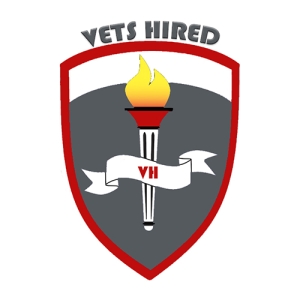How Effective Networking Helps Veterans Thrive in Their Careers
Transitioning from military service to civilian life can present various challenges for veterans, including finding meaningful employment and building successful careers. However, by leveraging the power of networking, veterans can unlock numerous opportunities and significantly enhance their professional prospects. Networking provides a pathway to connect with industry professionals, gain access to job opportunities, receive mentorship and guidance, and build a strong support system
Understanding Networking:
Networking is the practice of building relationships and connections with professionals in your industry or desired field. It involves actively engaging with individuals who share similar interests, experiences, or career aspirations. Networking is not just about exchanging business cards or connecting on social media; it is about cultivating genuine connections, fostering trust, and mutually benefiting from those relationships.
Benefits of Networking for Veterans:
1. Expanding Job Opportunities:
Networking opens doors to a wider range of job opportunities for veterans. By tapping into their professional connections, veterans can gain access to unadvertised positions and the hidden job market. Many companies prefer to hire through referrals and personal recommendations, and networking allows veterans to be in the right place at the right time. These connections can inform veterans about job openings that align with their skills and interests, giving them a competitive advantage in the job search process.
2. Mentorship and Guidance:
One of the key benefits of networking for veterans is the opportunity to connect with experienced professionals who can provide valuable mentorship and guidance. Mentors offer insights into specific industries, share their own career experiences, and help veterans navigate challenges they may encounter. They can provide advice on career advancement strategies, offer industry-specific knowledge, and help veterans set realistic goals for their professional development. Mentorship relationships formed through networking can be instrumental in shaping a veteran’s career trajectory.
3. Skill Development and Learning:
Networking events, industry conferences, and professional associations are excellent avenues for veterans to develop new skills and expand their knowledge. By actively participating in these activities, veterans can attend workshops, seminars, and training programs that enhance their expertise. Engaging with professionals in their desired fields enables veterans to stay updated with the latest industry trends, gain valuable insights, and broaden their skill set. The knowledge gained through networking can give veterans a competitive edge in the job market and increase their overall marketability.
4. Building a Professional Reputation:
Networking allows veterans to establish and enhance their professional reputation within their chosen industries. By actively participating in industry discussions, attending events, and sharing their expertise, veterans can position themselves as valuable contributors. By consistently engaging with professionals, veterans can build relationships, showcase their skills, and establish themselves as knowledgeable and reliable individuals. A positive professional reputation can lead to opportunities for career advancement, promotions, and recognition within their respective fields.
5. Access to Resources and Support:
Networking connects veterans with a wide range of resources and support systems tailored to their needs. There are numerous organizations, communities, and groups specifically dedicated to supporting veteran professionals. These networks provide access to job boards, career counseling, educational opportunities, and other resources that can aid in the career development of veterans. By tapping into these networks, veterans can find valuable support and guidance throughout their professional journey.
6. Entrepreneurial Opportunities:
For veterans aspiring to become entrepreneurs, networking is particularly valuable. By connecting with successful entrepreneurs, investors, and business leaders, veterans can gain insights into the world of entrepreneurship. Networking provides opportunities to find potential partners, collaborators, and mentors who can guide them in starting and growing their own businesses. These connections can also offer access to funding opportunities and industry-specific knowledge that can prove vital in the entrepreneurial journey.
7. Overcoming Transition Challenges:
Transitioning from military service to civilian careers can be a daunting experience for veterans. Networking provides them with a supportive community of individuals who have gone through similar transitions. Through networking, veterans can share their experiences, exchange advice, and receive emotional support from others who understand their unique challenges. Networking serves as a bridge to the civilian world, helping veterans navigate the transition with greater ease and confidence.
How to Start Networking:
1. Define Your Goals: Determine your career objectives and identify the industries or fields you wish to pursue. Clarifying your goals will help you focus your networking efforts effectively.
2. Leverage Existing Connections: Begin by reaching out to your existing network, including fellow veterans, colleagues, friends, and family members. Inform them about your career aspirations and ask if they can introduce you to professionals in your desired field.
3. Attend Industry Events: Attend conferences, seminars, and industry-specific events to meet professionals from your target field. Engage in conversations, ask insightful questions, and actively participate in discussions to make a positive impression.
4. Utilize Online Platforms: Create a professional presence on platforms like LinkedIn to connect with professionals in your industry. Join relevant groups, participate in discussions, and showcase your skills and experiences.
5. Seek Mentorship: Approach experienced professionals in your field and request their guidance and mentorship. Look for mentorship programs or organizations that specifically cater to veterans’ needs.
6. Volunteer and Join Associations: Volunteering for causes aligned with your interests or joining professional associations can provide networking opportunities while allowing you to contribute to your community and build your skills.
7. Maintain and Nurture Relationships: Networking is an ongoing process, and it’s essential to maintain and nurture the relationships you build. Keep in touch with your contacts, offer support when possible, and be open to reciprocating their assistance.
Through networking, veterans can harness their unique strengths and experiences to forge meaningful connections that propel them toward long-term success.




